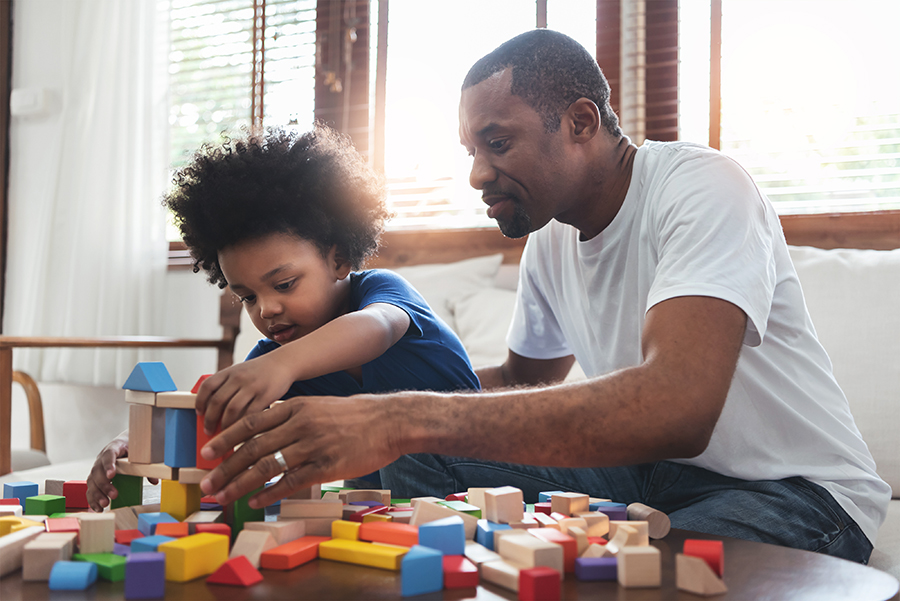Raising a Thinking Child (RaTC) Parent Program
Through professional learning, parent educators can facilitate the RaTC parent program with parents and families.
The Raising a Thinking Child (RaTC) program is designed to help parents learn to talk with children, ages 4-8, about problem solving using an approach which involves children in the process of thinking about what they do and why they do it. RaTC teaches children social and emotional learning skills, fosters cognitive learning and builds vocabulary that prepares children for success in school, including children ready to start Kindergarten.
RaTC provides parents with young children with concrete, interactive activities to help their children learn to solve “people” problems. The activities give guidance to parents for having conversations with their children that promote ways for children to resolve everyday conflicts and get along with others.
What our parents are saying…
“Dreading an upcoming trip to the zoo; worried that waiting in line, noise, kids, etc. may cause arguing and tantrums to occur. I was so surprised at how fun the day was, at how helpful the program had been in navigating the situation, and how what could have been a fighting match of an outing led to more bonding instead. It’s these little victories that really empower parents. I feel proud of how I am able to understand my daughter’s perspective on different problem situations.”
Father of Two Children Under Age 4
“We’re only a teeny little fraction of A LOT of good you’ve put out into our community. Over the past few days I picked up our old workbook and read over some of my answers….. & it’s just amazing to see the progress and how far we’ve come! I seriously can’t remember the last time I yelled about our cat or in general… there is more conversation now, there is more thinking!”
Father of a 4-Year Old
Impact of Raising a Thinking Child (RaTC) and Accompanying Workbook
- Reinforces your child’s effort to think for themselves.
- Gives you as a parent practical way to teach your child social and emotional competencies.
- Gives you and your child many hands-on things to do that can help them become …
- More empathetic
- Better able to cope with frustration and disappointment
- A better problem solver
- Gives you ways to practice problem-solving talk with your child.
- Helps you keep track of your own progress as an ICPS parent.
Source: Raising A Thinking Child –Wisconsin Impact Report 2017

Program Overview
Skills
- Practice problem-solving skills
- Identify feelings and preferences
- Demonstrate empathy (perspective-taking)
- Think of alternative solutions to problems
- Determine consequences of their actions
- Evaluate solutions to problem

Program Outcomes
Children will
- Learn how to think, not what to think
- Learn to think through a problem, so they can decide on a solution in light of its impact on themselves and others
- Become empowered with skills to negotiate for what they want, cope with frustration when they can’t have what they want
- Grow to be thinking and feeling human beings who behave not out of fear of punishment but out of a genuine desire not to want to hurt themselves or others
- Develop sensitivity to their own and others’ feelings,
- Think of more than one way to solve a problem,
- Anticipate the consequences of their acts upon themselves and others
- Become aware of a “GOOD TIME” and “NOT a GOOD TIME” to act
- Cope with frustration when they cannot get their desires met
Parents will
- Learn their children’s view of the problem
- Help children think about their own and other’s feelings in a problem situation
- Help children to think of alternative solutions to problem situations
- Help children think about he consequences of their actions
- Encourage children to evaluate their solutions by whether an idea “IS” or is “NOT a GOOD IDEA”
Dialoguing
“The child is an active participant not a passive recipient. Children listen because they are actively engaged in the dialogue.” Dr. Myrna B. Shure
Parents using the problem-solving approach in Raising a Thinking Child, guide their children by teaching them skills to think about their behavior toward positive outcomes. Children learn to make good decisions and develop empathy.